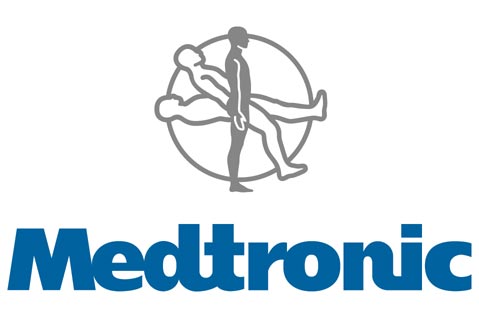
Minnesota medical device maker Medtronic (NYSE:MDT) today announced regulatory wins in Australia and the European Union for next-generation components of its Symplicity renal denervation system, designed to help treat patients with chronic, drug-resistant high blood pressure.
The company won CE Mark approval in Europe and Therapeutic Goods Administration in Australia for the "highly flexible" new Symplicity Spyral catheter and Symplicity G3 RF generator, both designed to streamline renal denervation procedures.
"As we continue to drive the future of renal denervation as a treatment for uncontrolled hypertension, we are excited to deliver our fast and efficient multi-electrode Symplicity Spyral system, inspired by years of clinical experience and collaboration with top thought leaders in the field," Medtronic renal denervation vice president & general manager Nina Goodheart said in prepared remarks. "We have significantly enhanced our technology with sophisticated features designed to meet specific unmet needs and we believe these improvements, coupled with our strong safety and efficacy profile, will provide unprecedented benefit to both patients and physicians."
The Symplicity Spyral features 4 electrodes capable of delivering simultaneous or selective energy to the renal artery wall. The Spyral catheter was designed to be flexible enough to conform to the size and shape of blood vessels, capable of accommodating diameters between 3mm and 8mm, according to Medtronic.
The new G3 RF generator, which includes the safety components and treatment algorithms present in the Symplicity line, also features a new touch-screen interface that still works with the single-electrode Symplicity catheter.
Feature: Deflating the hype: Are we setting renal denervation up for disappointment?
The news marks more progress for Medtronic’s Symplicity line, for which the company recently unveiled 3-year results from Symplicity HTN-2, a randomized, controlled but un-blinded study of 106 patients in Europe, Australia and New Zealand. The device maker is also slated this coming spring to unveil highly anticipated results from Symplicity HTN-3, the 1st controlled, randomized and blinded clinical trial examining renal denervation.
The FDA granted Medtronic Investigational Device Exemption to launched SYMPLICITY HTN-4, a randomized, controlled and blinded clinical trial of up to 580 patients from around 100 clinical sites. The study will serve not only to advance Medtronic’s Symplicity system toward U.S. approval but may help generally validate renal denervation in treatment of patients with less severe hypertension.
Medtronic is a front-runner in the race to bring renal denervation technology to the U.S., although the market has lost some of its shine. The technology, once a darling of medical device conferences and industry headlines, has lost some of its charm over the last year as the market proved less lively than previously expected. Some of the reports issued during this year’s TCT meeting may help rejuvenate interest in the procedure, which researchers have suggested may have applications in ailments ranging from chronic kidney disease to diabetes and obstructive sleep apnea.

